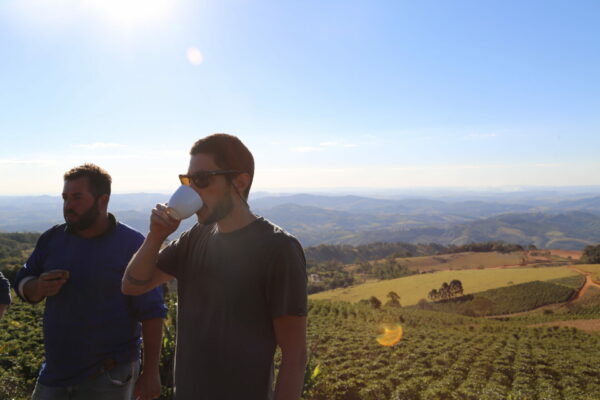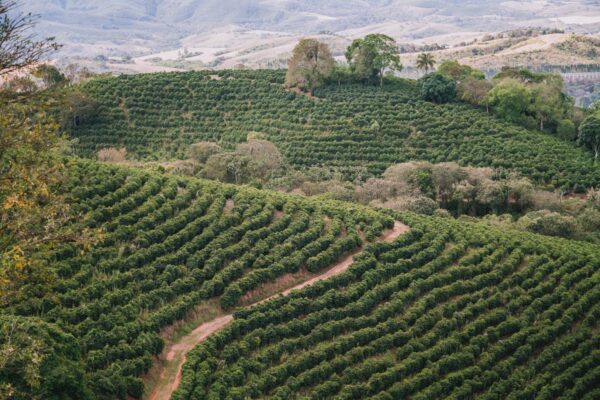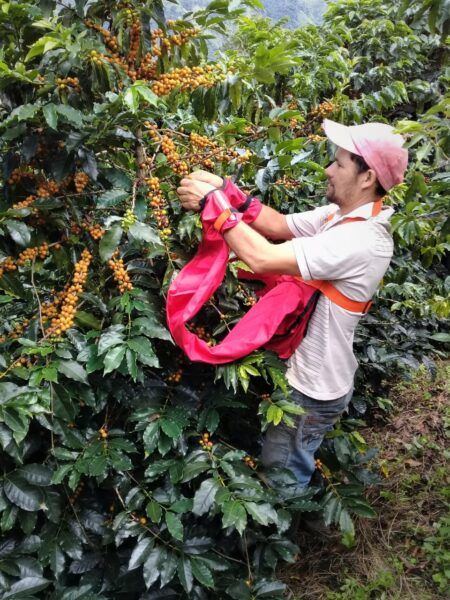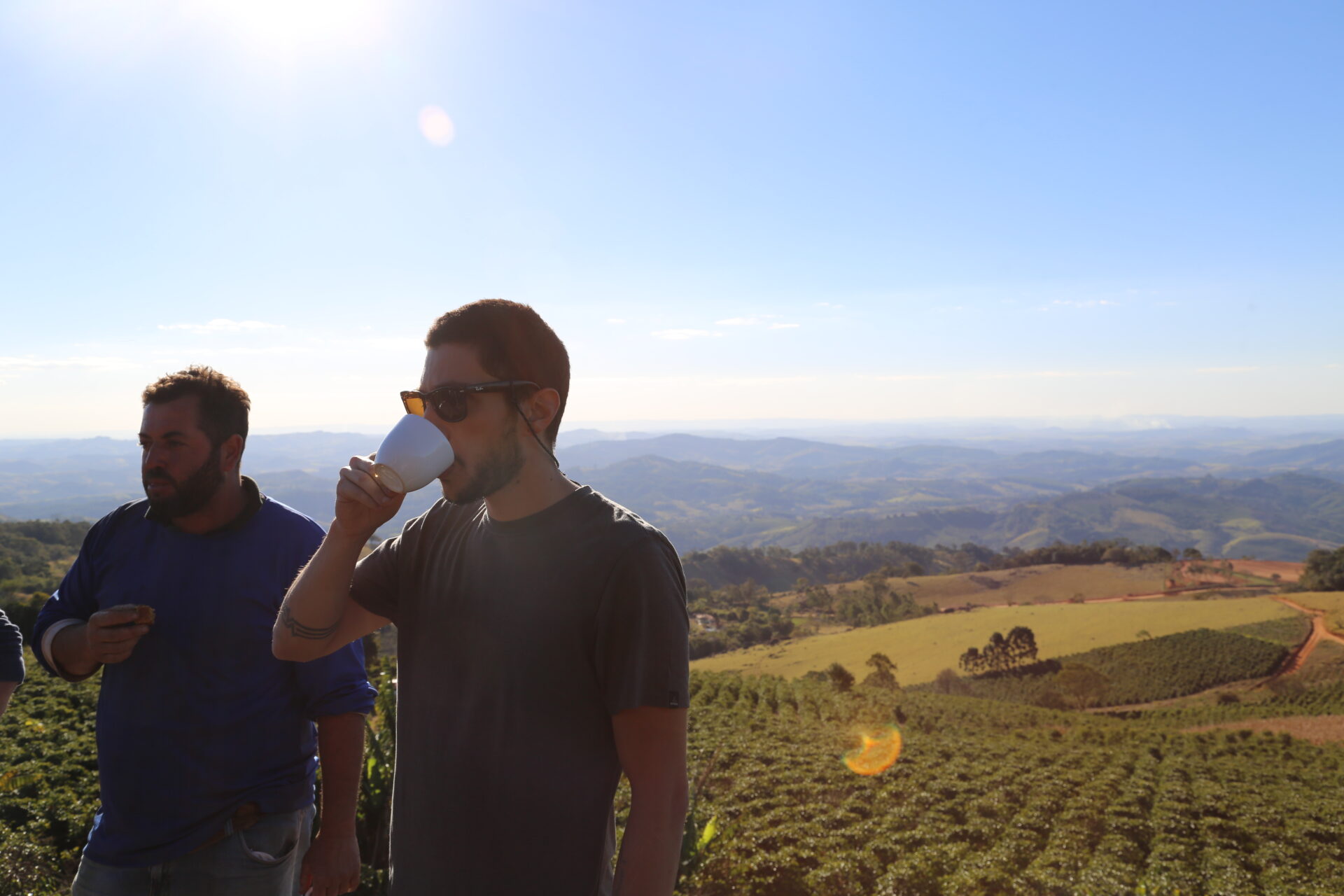Happy Earth Day Coffee Lovers!

The ideal growing conditions for coffee span the globe along the equator, which unfortunately makes the coffee plant more prone to the negative effects of the warming climate. Coffee growth occurs at altitudes between 800-1,400 meters above sea level and is cultivated in diverse ecosystems varying from rainforests to mountainous regions. The biodiversity of these ecosystems hold a vital role in the productivity and overall health of the coffee plant. Biodiverse ecosystems provide several benefits including natural pest control, nutrient cycling, and the strengthening of soil health. Each of these aspects reduce the need for unnatural or chemical applications while also promoting sustainable coffee production.

With proper management, incorporating and maintaining shade trees can be an effective, low-cost way for smallholder coffee farmers to build farm resilience to climate threats, while simultaneously supporting food security and providing income. The environmental issues and concerns of decreasing biodiversity, increasing temperatures, and soil degradation are all areas that can be combated or supported through the implementation of sustainable farming practices, such as shade management.
Agroforestry is another sustainable approach to promote biodiversity and environmentally friendly practices in coffee production. Agroforestry involves the integration of trees and other crops within coffee farms and results in benefits for both the farmers and the environment. Through the agroforestry system, farmers can cultivate more than one plant species so that if one crop fails or the price drops, losses can be covered from the other crops. Biodiversity on coffee farms can provide additional sources of income, such as non-timber forest products and ecotourism, which can help to diversify income and reduce reliance on coffee production alone.
 Agroforestry provides additional sources of income for farmers, while also promoting soil health, water conservation, and wildlife habitat. By planting trees and other crops alongside coffee, farmers can create a more diverse ecosystem that can support and enhance biodiversity. As the climate continues to change, the ideal elevation for coffee production is likely to increase and push farmers to adapt and migrate towards higher elevation environments. The displacement of farmers will not only negatively impact their livelihoods, but will influence the levels of biodiversity that currently exist throughout the higher elevation ecosystems. Through promoting and enhancing biodiversity on coffee farms, farmers can reduce the environmental impact of coffee production and support the long-term sustainability of the coffee industry.
Other potential impacts to the coffee industry as a result of climate change include irregular weather patterns, warmer temperatures, and increased outbreaks of pests and diseases. These climate-related challenges will not only impact small scale farms, but also threaten the entire global supply chain. The coffee crop is extremely sensitive and susceptible to weather changes with decreasing yields throughout seasons of high rainfall. The maintenance of temperature and humidity through shade canopy and agroforestry can benefit coffee producers with greater and more consistent yields. Transitioning to organic, more sustainable methods of production is becoming increasingly important for coffee farmers around the globe.
Agroforestry provides additional sources of income for farmers, while also promoting soil health, water conservation, and wildlife habitat. By planting trees and other crops alongside coffee, farmers can create a more diverse ecosystem that can support and enhance biodiversity. As the climate continues to change, the ideal elevation for coffee production is likely to increase and push farmers to adapt and migrate towards higher elevation environments. The displacement of farmers will not only negatively impact their livelihoods, but will influence the levels of biodiversity that currently exist throughout the higher elevation ecosystems. Through promoting and enhancing biodiversity on coffee farms, farmers can reduce the environmental impact of coffee production and support the long-term sustainability of the coffee industry.
Other potential impacts to the coffee industry as a result of climate change include irregular weather patterns, warmer temperatures, and increased outbreaks of pests and diseases. These climate-related challenges will not only impact small scale farms, but also threaten the entire global supply chain. The coffee crop is extremely sensitive and susceptible to weather changes with decreasing yields throughout seasons of high rainfall. The maintenance of temperature and humidity through shade canopy and agroforestry can benefit coffee producers with greater and more consistent yields. Transitioning to organic, more sustainable methods of production is becoming increasingly important for coffee farmers around the globe.
 As a consumer, it is important to understand how climate change impacts coffee production along with ways to support both the environment and the coffee industry. Bringing in a reusable cup or composting your coffee grounds are easy ways to reduce individual waste!
Purchasing coffee that has been produced using sustainable and environmentally friendly agricultural practices is another simple way to support the farmers who are striving to protect and restore the environment.
Bona celebrates the Earth and coffee farmers by partnering with and sourcing from farms that utilize sustainable practices around the globe.
Happy Earth Day!
As a consumer, it is important to understand how climate change impacts coffee production along with ways to support both the environment and the coffee industry. Bringing in a reusable cup or composting your coffee grounds are easy ways to reduce individual waste!
Purchasing coffee that has been produced using sustainable and environmentally friendly agricultural practices is another simple way to support the farmers who are striving to protect and restore the environment.
Bona celebrates the Earth and coffee farmers by partnering with and sourcing from farms that utilize sustainable practices around the globe.
Happy Earth Day!


